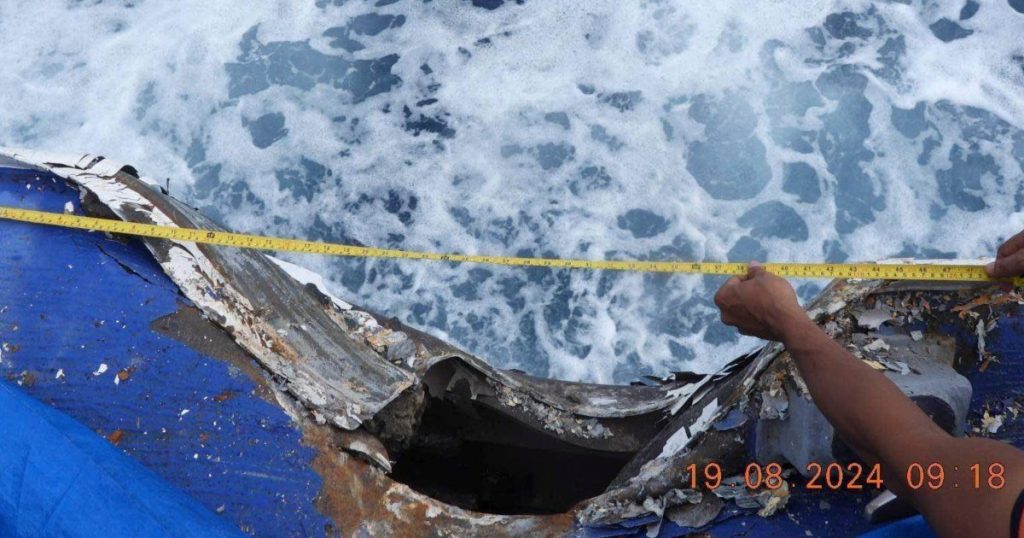Chinese and Philippine coast guard ships collided near Sabina Shoal in the disputed South China Sea, with both sides blaming the other for the incident. China accused the Philippines of intentionally crashing into one of its ships, while the Philippines claimed that the Chinese vessels engaged in aggressive maneuvers that led to the collisions. The Philippines’ National Task Force on the West Philippine Sea reported that two of its ships sustained structural damage as a result of the collision.
The clash occurred near the Spratly Islands, where multiple countries, including Vietnam and Taiwan, have overlapping claims. China asserted its sovereignty over the area, including Sabina Shoal, while the Philippines sent patrol ships to the region in response to suspicious activities by Chinese vessels. Sabina Shoal is located near the Philippine-occupied Second Thomas Shoal, which has been a focal point for tensions between Chinese and Philippine coast guard ships and accompanying vessels.
Last month, China and the Philippines reached an agreement to prevent further confrontations in the Second Thomas Shoal as the Philippines transported supplies and personnel to its territorial outpost in the area. The Philippine navy successfully completed the transport without incident, indicating a potential easing of tensions in the region. However, China’s expansive maritime claims in the South China Sea have been a source of conflict with various other countries in the region for years.
The collision between Chinese and Philippine coast guard ships highlights the ongoing disputes over territorial claims in the South China Sea, a strategically important region with abundant resources. China’s assertion of sovereignty over the Spratly Islands and surrounding areas has led to tensions with neighboring countries. The Philippines has been vigilant in safeguarding its maritime domain, especially in areas where there are conflicting claims with China.
Both China and the Philippines have accused each other of provocative actions leading to the collision near Sabina Shoal. The incident underscores the need for diplomatic efforts to address territorial disputes in the South China Sea and prevent further escalation of tensions. The use of coast guard vessels and patrol ships by both countries in disputed waters reflects the importance of maritime security in the region, where control over territories and resources is a key concern.
As the situation in the South China Sea remains contentious, the collision between Chinese and Philippine coast guard ships serves as a reminder of the complex dynamics at play in the region. Efforts to mitigate conflicts through dialogue and negotiations are crucial to maintaining peace and stability in the area. The involvement of multiple countries with overlapping claims in the disputes further complicates the situation, emphasizing the need for multilateral cooperation and adherence to international law to resolve disagreements peacefully.


